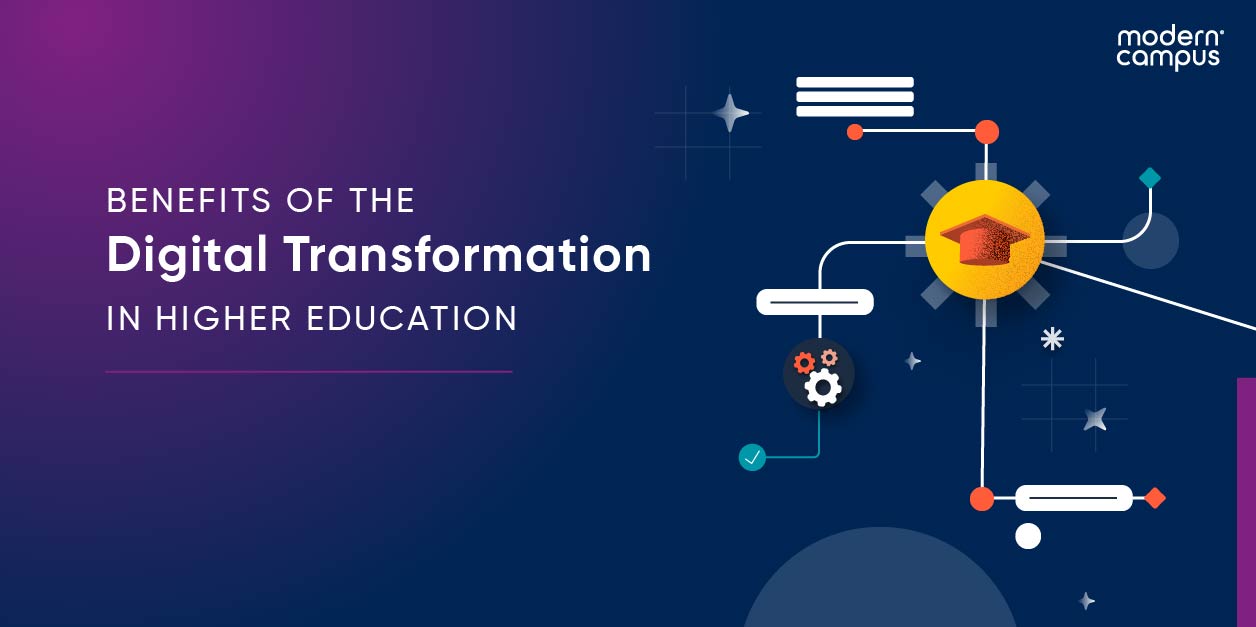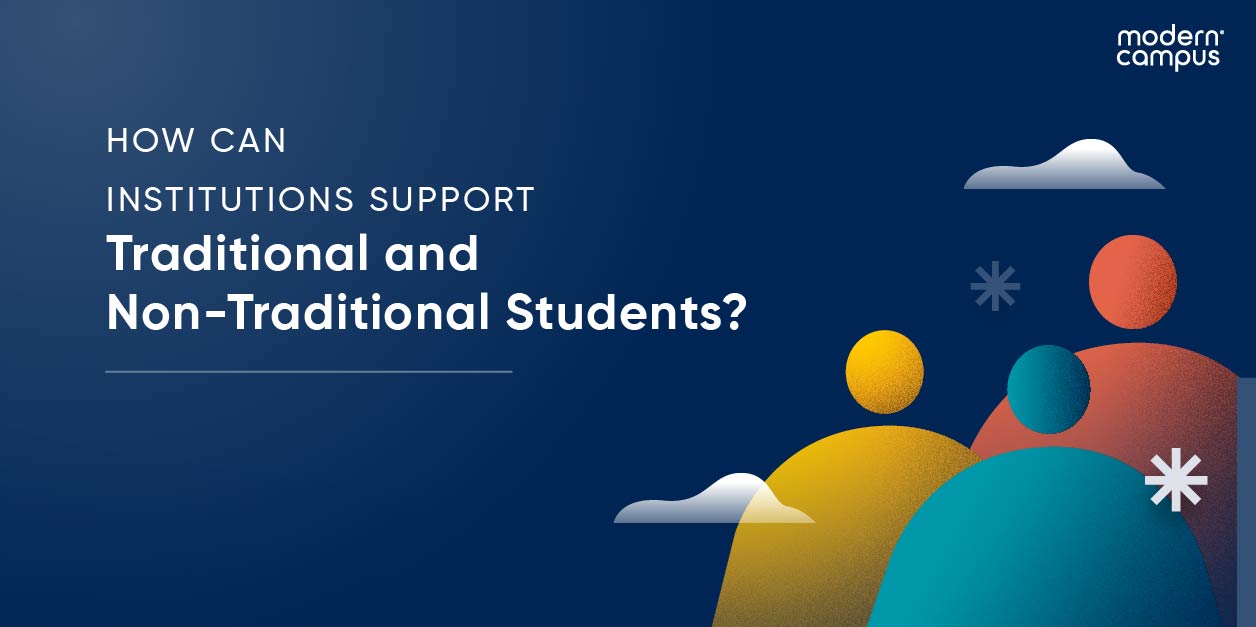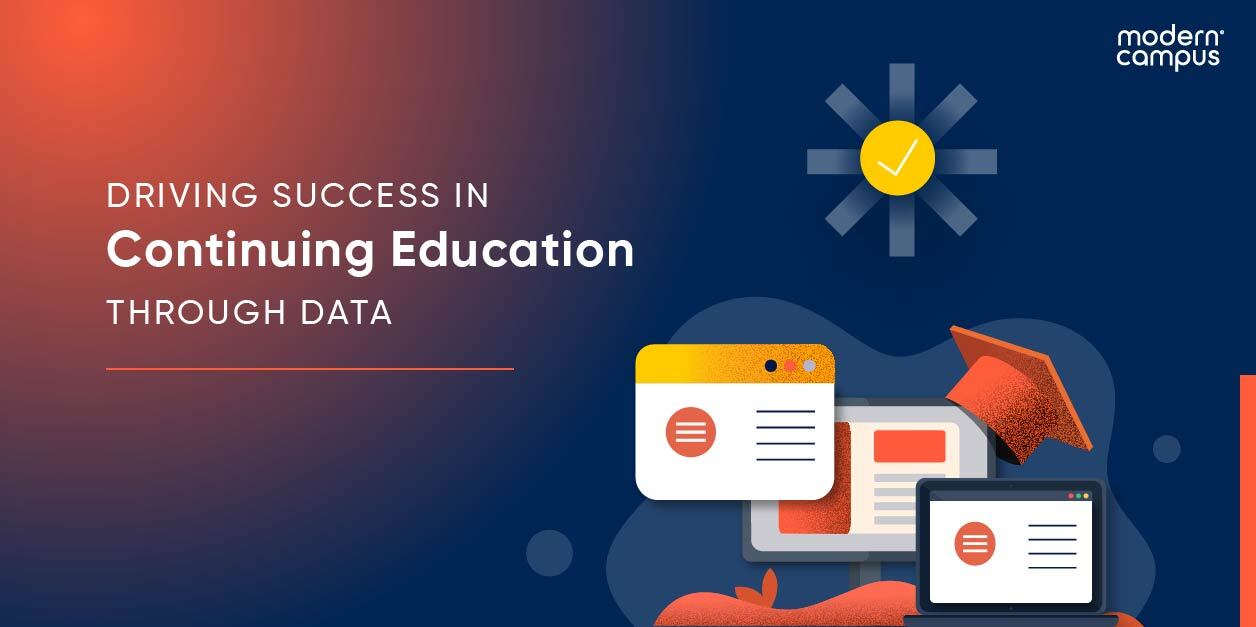Understanding Higher Education’s Digital Transformation
The digital landscape has fundamentally reshaped higher education, revolutionizing how students learn, faculty teach, and institutions operate.
Emerging technologies, along with students’ changing expectations about technology, are paving the way for more efficient, accessible, and personalized educational experiences.
Let's delve into the key advantages of this transformation, along with the top strategies for universities and colleges that wisely wish to embrace it.
Benefits of the digital transformation in higher education
Student experience enhancement
Students are no longer beholden to appearing in person at specific times at precise campus locations. Personalized digital learning paths, interactive content, virtual support services, and online courses promote blended learning and remote education while allowing students to access resources and learn at a speed that fits their availability and preferences.
The digital transformation not only encourages and allows more students to leverage support services in the first place, but it also makes it possible for those services to resonate with more students and their online learning needs—thereby maximizing the benefits of such services.
Access to educational resources
Students now have a world of knowledge at their fingertips. The digital transformation has democratized access to educational resources, breaking down geographical barriers and offering a wealth of research materials and collaborative tools.
However, with this comes the risk of students accessing misinformation, so institutions should take care to help students develop media literacy, critical thinking, and fact-checking skills.
Gamification
Integrating gamification elements into student-facing platforms has made education more interactive and engaging. Game-like features help educators motivate student involvement and enhance the learning experience.
In addition to making everyday lectures, discussions, and projects inside of the classroom more exciting, gamification is also boosting engagement in co-curricular activities; points, leaderboards, reward programs, and other gamified elements are motivating more students to join student organizations and attend campus events.
Collaborative learning
Digital technologies facilitate collaborative learning, allowing students to work together on projects, share ideas, and engage in discussions regardless of their physical location. This fosters a greater sense of community, encourages critical thinking, and further expands the college experience beyond the physical or virtual classroom.
Commuter students, along with learners who work full-time or part-time, are now more easily able to interact with peers, staff, and faculty.
Administrative automation
Administrative tasks are being streamlined through automation. By reducing time spent on routine tasks, institutions are saving a massive amount of time and resources, promoting collaboration across departments, and increasing staff happiness.
Automation also allows faculty and staff to spend more time directly interacting with students and working on strategic initiatives that benefit the institution’s sustainable future.
Data analytics for decision-making
By providing institutions with valuable, real-time insights into student performance, engagement, and behavior, data analytics has revolutionized how higher education professionals make strategic decisions.
Colleges and universities can use a wide variety of metrics to understand their students better and make decisions that improve support services, classroom experiences, enrollment strategies, and more.
The digital transformation allows institutions to more easily track student participation via mobile swipe-in technology, garner information on website visitors through CRM systems or SIS, analyze engagement with institutional communication, better understand enrollment trends through visualization, and more.
Most importantly, emerging technologies make it possible for more administrators (beyond data and research specialists) to become data-informed decision-makers.
Strategies to embrace digital transformation in higher education
Cultivating a digital culture
Cultivating a digital culture is essential for driving innovation and ensuring that all stakeholders are engaged in the digital transformation process. This involves fostering a mindset among faculty, staff, students, and community partners that embraces change and promotes experimentation.
Collaboration should become an expectation, with different departments and offices incentivized to work together to drive a culture of digital innovation and transparency.
Leadership support is crucial. Institutional higher-ups should champion digital transformation initiatives, setting the tone for a digital-first mindset from the top down. Leaders should also ensure that faculty, students, and staff are provided with ongoing training and development opportunities to leverage digital tools effectively.
Furthermore, recognizing and celebrating successful innovation can reinforce the importance of digital transformations.
Investing in infrastructure and resources
Embracing digital transformation means encouraging innovation in more than just name; institutions must invest in the right infrastructure and resources to make real change possible. This includes upgrading existing infrastructures, implementing robust cybersecurity measures, and providing access to the latest digital tools and technologies.
Software systems to consider investing in include e-learning platforms, co-curricular management hubs, personalized web content management systems (CMS), catalog and curriculum management tools, student communication technologies, and enrollment solutions purpose-built for non-traditional learners.
Addressing the digital divide
A 2021 study found that nearly a quarter of American college students have unreliable internet access. Any institution that wishes for all its students to benefit from the digital transformation must work to further internet access, along with increasing students’ digital literacy skills.
This could be achieved, in part, through campus resources and community partnerships that provide students with free or reduced-cost internet, laptops, and tablets.
Digital literacy programs—including one-time events and ongoing workshops—can help students develop the skills they need to navigate digital tools. Meanwhile, incorporating digital literacy into the curriculum can teach learners to evaluate online information, use digital tools for research and collaboration, and understand concepts like cybersecurity and data privacy.
Safeguarding data privacy and security
Safeguarding data privacy and security is paramount in the digital age, especially when sensitive student and institutional data are at stake. Institutions must implement robust cybersecurity measures and adhere to data protection regulations.
Key steps to safeguarding data privacy and security include encrypting sensitive data, implementing access controls to restrict access to authorized users, conducting regular security audits and assessments to identify and address vulnerabilities, and implementing data protection policies that outline best practices for handling and storing data securely.
Conclusion
Embracing the digital transformation in higher education requires a strategic approach that encompasses cultural change, infrastructure investment, addressing digital disparities and safeguarding data privacy and security. By adopting these strategies, institutions can position themselves for success in the digital age and provide a more inclusive and innovative learning environment that modern students demand.
Last updated: April 8, 2024




